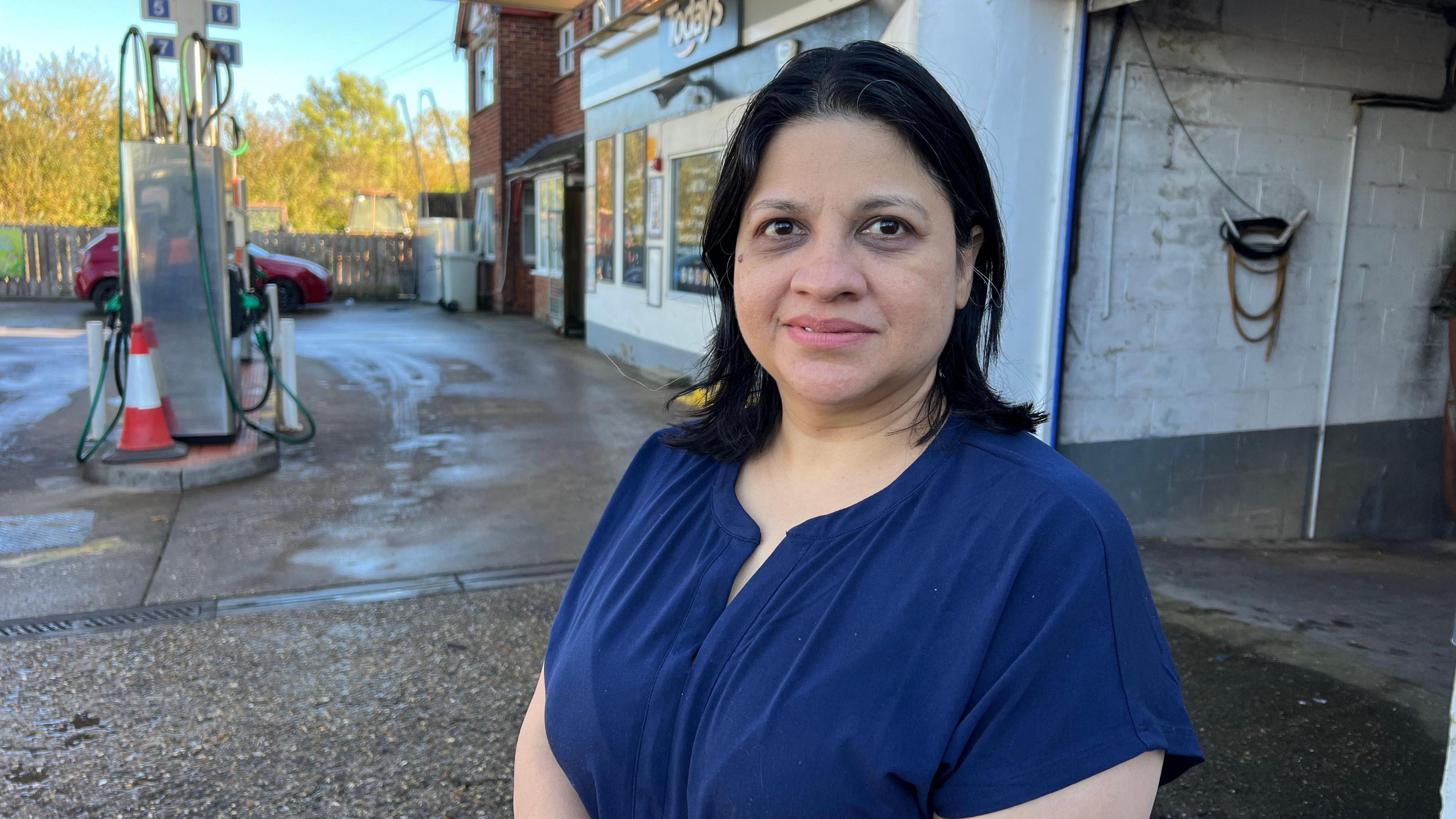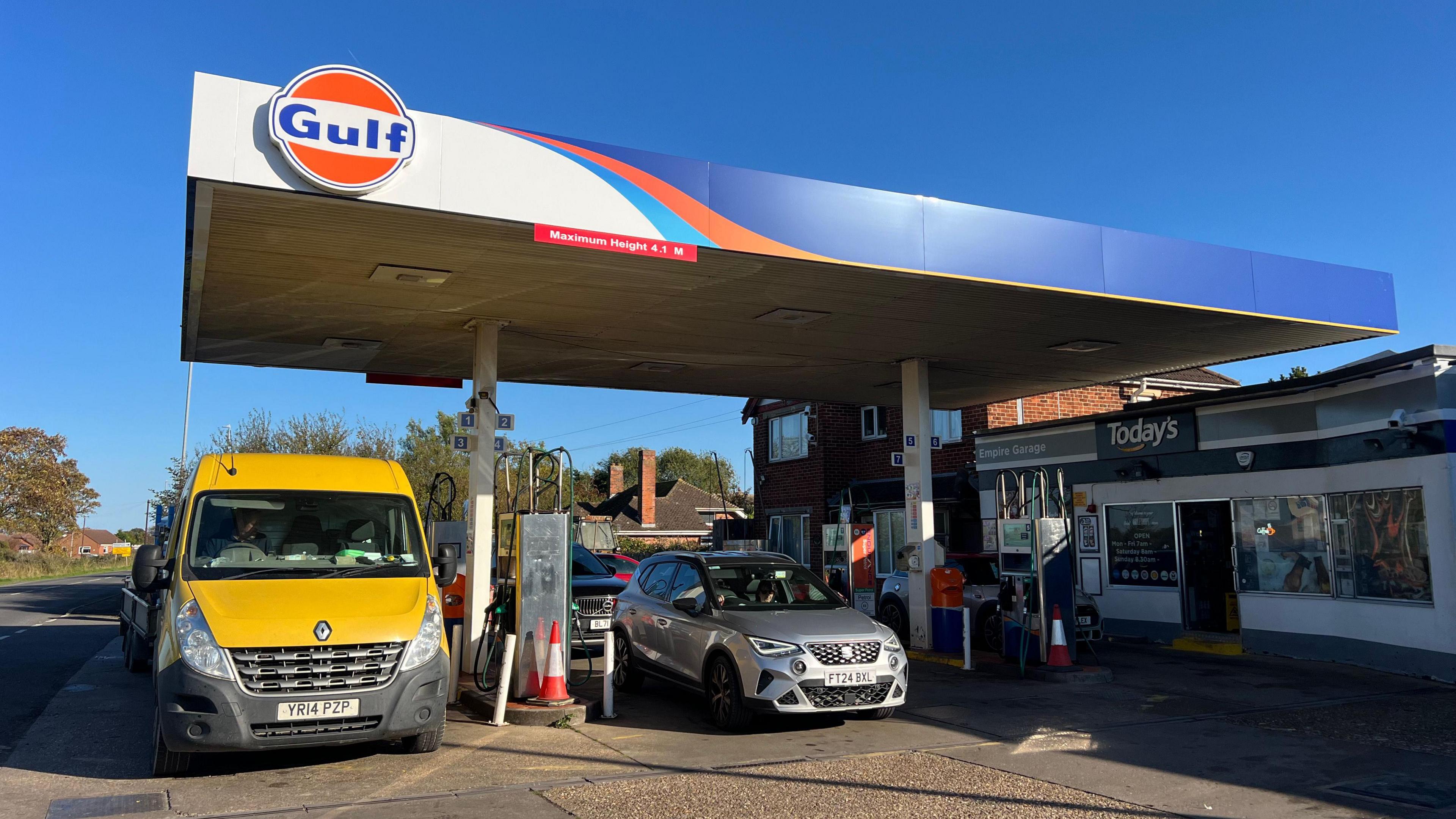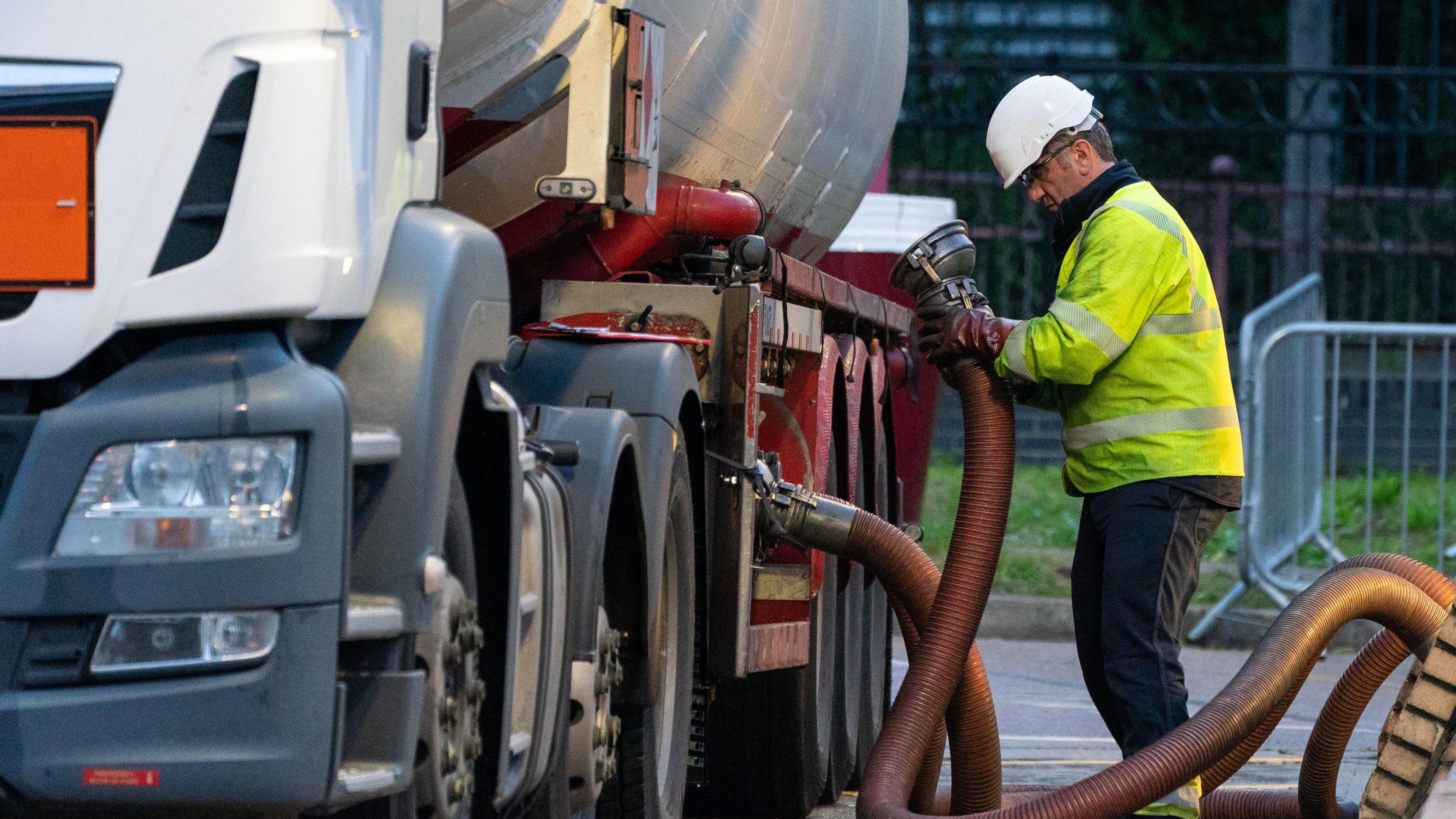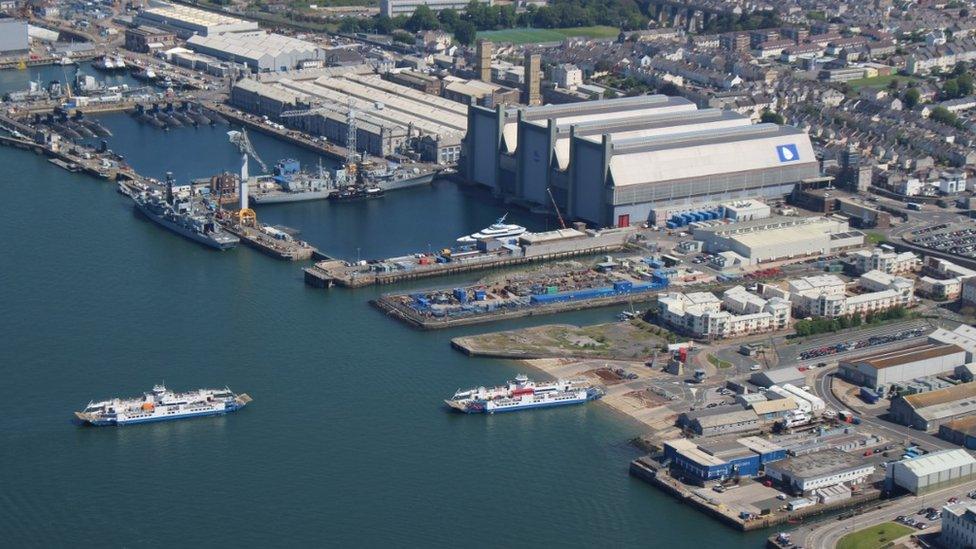‘Drive-offs are killing our family petrol station’

Kavita Pilani said drive-offs are causing “huge losses” to their family business
- Published
Owners of a family run petrol station said people driving off without paying is causing “huge losses” to their business.
Kavita and Sanjay Pilani, who own Empire Garage in Mablethorpe, Lincolnshire, said this year has been the worst with incidents happening up to twice a day.
Mrs Pilani said they have reported every incident to Lincolnshire Police but “they don’t do anything about it”.
The force said it had received multiple reports of drivers leaving the garage without paying, had "considered the evidential opportunities for investigation" and offered advice on civil recovery of the debt.
Mr and Mrs Pilani said people are filling their tanks “nothing less than £80 or £90” and are driving off without paying.
This has happened more than 50 times in the past six months.
She added that it is not only the financial loss, but the emotional impact on staff because "they get very stressed at times".
Despite putting out pre-payment notices, Mrs Pilani said "most people don't know how much they want to fill up".
She added: "We can't do anything about it."
Some customers labelled the acts as "disgusting".
One user, Nicky, said: "It's not necessary. Fuel's really cheap at the moment. I think it's absolute madness.
"They're small businesses, they can't survive if everybody doesn't pay for their fuel."

There has been more than 50 incidents in the past six months
Forecourts face two issues: making off without paying, a criminal offence, and having no means to pay – a civil matter that could apply to someone who has filled up but left their money at home.
Gordon Balmer, the executive director at the Petrol Retailers Association, whose members run 65% of UK forecourts, said the two combined issues were costing more than £100m a year – about £9,000 per forecourt.
"For a family run business, it's going to go straight to their bottom line," he said. "It's a very serious issue."
Mr Balmer said the industry was working with police forces to fight back.
At present, pursuing a driver for payment means applying to the DVLA for the registered keeper details using paper forms, but the industry believes companies will soon be able to apply digitally.
"If we can get more timely information from the DVLA, we think we've got a bit of a breakthrough," Mr Balmer added. "It should help us get the money back quicker."
Other measures included using CCTV systems to identify cars involved in crime and prevent the pumps from being used.
Lincolnshire Police said it was working with forecourts on a range of measures to prevent drive-offs, including pay-at-pump technology.
A spokesperson said incidents were "not always thefts, but cases of people forgetting to pay for fuel".
"Officers need to focus their time on investigating crimes, while the civil recovery of the debt is the responsibility of the garage," they added.
Listen to highlights from Lincolnshire on BBC Sounds, watch the latest episode of Look North or tell us about a story you think we should be covering here, external.
Related topics
- Published10 April 2024

- Published23 July 2023

- Published15 August 2023
